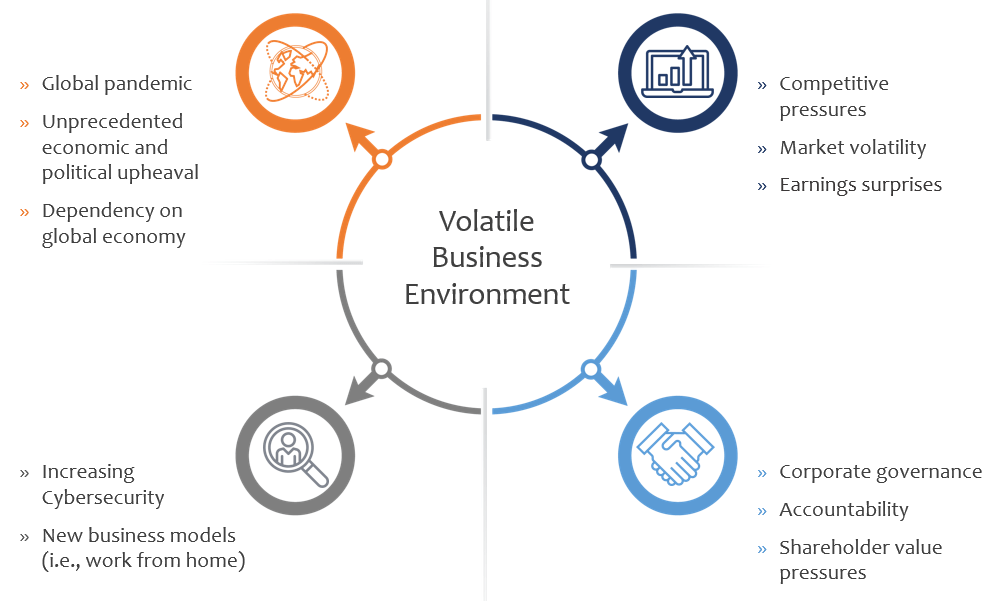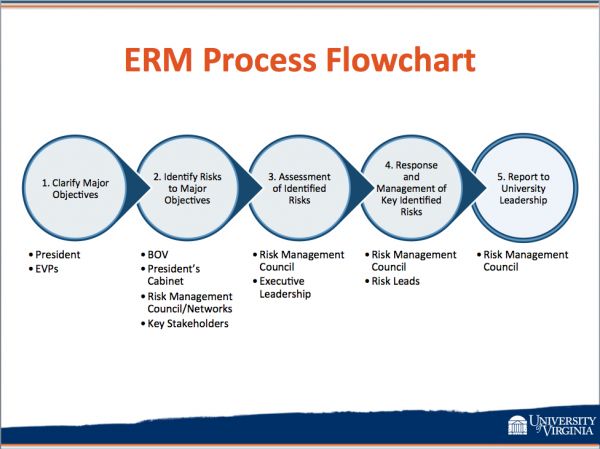Check out the Function of AI in Promoting Ethics and Honesty to Fight Insider Threats Properly
The combination of AI in organizational frameworks has actually become critical in resolving insider risks. By employing advanced analytics and real-time monitoring, AI systems can determine variances from ethical actions amongst workers (Insider threats). This aggressive approach not just enhances compliance yet additionally fosters a setting of depend on. As firms progressively depend on these technologies, questions arise concerning their performance and potential ramifications for workplace society. What exists ahead in the advancement of AI's function in promoting honesty?
Recognizing Expert Threats and Their Effect On Organizations
Organizations frequently focus on external hazards, insider hazards pose a substantial danger that can threaten security and honesty. These hazards arise from individuals within the organization, such as staff members or service providers, that might abuse their access to delicate details for personal gain or destructive intent. The effect of expert hazards can be severe, bring about economic losses, reputational damages, and legal ramifications.
Variables adding to insider threats consist of dissatisfaction with the work environment, absence of oversight, and inadequate worker training on protection methods. Organizations typically battle to determine these dangers, as they can be difficult to detect till significant damages has actually taken place. Avoidance approaches have to focus on promoting a society of count on and accountability, together with executing durable surveillance and reporting systems. By recognizing and addressing the intricacies of insider hazards, companies can enhance their security pose and shield their valuable properties from interior dangers.
The Evolution of AI in Workplace Security
As companies increasingly confront varied safety difficulties, the integration of expert system (AI) in office safety has progressed substantially. Initially, AI applications focused mostly on automating standard safety and security procedures, such as access control and monitoring. Nevertheless, innovations in equipment understanding and information analytics have transformed AI right into a proactive tool efficient in recognizing potential dangers and vulnerabilities in real-time.
Organizations now leverage AI-driven systems to evaluate large amounts of information, allowing them to detect strange actions that might indicate insider threats. This advancement has actually brought about the advancement of innovative algorithms that can discover from historic events, improving the system's predictive capacities. On top of that, AI devices are increasingly utilized to simplify incident reaction procedures, permitting protection teams to act quickly and properly.
Just How AI Monitors Staff Member Habits for Ethical Conformity
Fabricated knowledge plays a vital role in monitoring worker habits to assure honest compliance within organizations. AI systems assess large amounts of information created by workers, including interactions, purchases, and accessibility to delicate details. By using advanced formulas, these systems can identify inconsistencies from established ethical criteria and firm policies.
Artificial intelligence versions continuously adapt to acknowledge patterns of habits that may indicate moral breaches, such as unapproved information access or uncommon deal tasks. Insider threats. Furthermore, AI-driven devices can supply real-time signals to administration, helping with prompt interventions when potential dangers are discovered
The assimilation of AI right into compliance tracking not just improves the organization's capacity to maintain honesty but also fosters a society of liability amongst staff members. By advertising openness, AI systems work as a deterrent versus underhanded actions, ensuring that staff members stay aligned with ethical standards and organizational worths.
Examining Patterns: Recognizing Risky Actions With AI
A growing variety of companies are leveraging AI to analyze patterns that may show high-risk habits among employees. By making use of advanced algorithms, these systems can sift through substantial amounts of data, determining abnormalities in customer habits that could recommend possible insider hazards. For example, AI can find unusual access patterns to delicate info, such as staff members accessing data outside their usual range of work or during irregular hours. Furthermore, behavior analytics can highlight regular adjustments in a worker's communication style or collaboration behaviors, which might represent underlying issues. This positive approach allows organizations to determine risk variables prior to they intensify into significant hazards. Subsequently, the integration of AI into keeping an eye on methods not just improves safety and security however also promotes a society of liability and honest behavior. By identifying these patterns, organizations can better recognize the behavior characteristics within their labor force, inevitably promoting a safer and a lot more honest workplace.
Real-Time Insights: Immediate Actions to Possible Risks
Real-time understandings through anticipating analytics and automated sharp systems play a crucial function in resolving possible threats to ethics and integrity. By leveraging these modern technologies, companies can prepare for dangerous behaviors and respond without delay to alleviate risks. This proactive technique boosts liability and fosters a culture of integrity in various environments.
Predictive Analytics Applications

Automated Alert Equipments
Anticipating analytics offers a foundation for companies to enhance their responsiveness to moral worries with automated alert systems. These systems make use of real-time data to keep an eye on activities, detecting abnormalities that may signify possible insider hazards. By leveraging artificial intelligence algorithms, automated alerts can determine patterns of behavior that differ established norms, permitting speedy treatment. This immediacy is crucial in mitigating risks connected with dishonest methods. Furthermore, automated sharp systems can simplify interaction among appropriate stakeholders, making sure that potential hazards are dealt with without delay and efficiently. As organizations increasingly rely upon AI-driven services, the assimilation of automated alert systems will play a crucial function in fostering a culture of principles and integrity, ultimately safeguarding business possessions.
Cultivating a Society of Trust With AI-Driven Openness
AI-driven transparency can considerably boost trust fund within organizations by promoting responsibility and open interaction. With real-time surveillance remedies, stakeholders can gain insights into processes and decision-making, fostering a culture of stability. Data-driven decision-making additionally sustains this transparency, allowing educated selections that line up with ethical requirements.
Enhancing Openness and Accountability
Exactly how can organizations efficiently foster a culture of count on? By improving openness and accountability through the critical usage of synthetic intelligence. AI can assist companies systematically track decision-making procedures, making sure that actions line up with well-known moral criteria. This openness enables workers to see the rationale behind choices and plans, decreasing uncertainty and cultivating a feeling of justness. In addition, AI-driven tools can assist in clear interaction relating to expectations and responsibilities, empowering individuals to take ownership of their activities. As liability ends up being ingrained in the business culture, workers are more probable to participate in ethical habits, understanding their actions are monitored and reviewed. Inevitably, this approach grows an atmosphere where count on can prosper, substantially alleviating the risk of expert dangers.
Real-Time Tracking Solutions
As organizations progressively seek to cultivate a culture of trust fund, real-time monitoring remedies emerge as a crucial tool in improving transparency. These AI-driven systems continuously track activities, providing insights into customer behavior and possible anomalies that might show insider dangers. By implementing such tracking remedies, organizations can proactively recognize risks, making certain punctual responses to questionable tasks. This not just safeguards delicate details but additionally enhances a commitment to ethical practices. The transparent nature of real-time surveillance aids develop staff member confidence, as individuals are mindful that their activities are being observed for the greater good. Ultimately, these remedies offer to cultivate a workplace environment based in trust fund, responsibility, and ethical integrity, essential for minimizing insider dangers successfully.

Data-Driven Decision Making
Real-time surveillance options lay the foundation for data-driven decision making, which significantly improves organizational transparency. By leveraging AI technologies, companies can assess substantial quantities of information to determine anomalies and patterns indicative of possible expert dangers. This analytical method allows stakeholders to make educated decisions based in empirical evidence, fostering a society of trust amongst workers. Transparency in decision-making procedures, strengthened by AI-driven understandings, urges accountability and ethical habits. Additionally, it permits organizations to proactively address susceptabilities, making certain that activities taken are warranted and interacted plainly. Therefore, the application of data-driven methods not only reduces threats connected with expert risks however also strengthens visit our website the worths of integrity and moral conduct within the business framework.
Future Trends: The Role of AI in Enhancing Workplace Ethics
While companies significantly transform to man-made intelligence for operational effectiveness, the possibility of AI to enhance workplace principles is obtaining prestige. Future trends indicate that AI will play a vital role in establishing honest structures and standards, enabling organizations to browse complex ethical problems. By analyzing huge amounts of information, AI can identify patterns of unethical habits and give insights that advertise openness and accountability.
Moreover, AI-driven tools can facilitate real-time tracking of employee interactions, guaranteeing adherence to moral standards. This aggressive technique not just alleviates expert dangers however also grows a society of honesty. As companies accept AI modern technologies, they should likewise prioritize moral programming and algorithmic predisposition reduction to guarantee fairness.
In this developing landscape, the integration of AI in ethical practices stands for a transformative shift, cultivating an environment where stability is not just anticipated however methodically reinforced.
Regularly Asked Inquiries
Exactly How Does AI Differentiate Between Benign and Malicious Actions?
AI distinguishes in between benign and destructive activities by assessing patterns in customer actions, utilizing artificial intelligence algorithms to recognize abnormalities, and reviewing contextual data to determine whether activities align with recognized standards or show prospective hazards.
Can AI Equipment Replace Human Being Judgment in Moral Decision-Making?
AI tools can not fully change human judgment in ethical decision-making. While they can examine data and recognize patterns, the nuanced understanding of context, worths, and moral ramifications still needs human insight and discernment.
What Are the Personal Privacy Effects of AI Checking Staff Member Actions?

How Can Organizations Make Sure AI Algorithms Are Morally Made?
Organizations can assure AI algorithms are ethically made by implementing clear advancement processes, entailing diverse stakeholders, performing normal audits, and sticking to well established moral structures that prioritize justness, responsibility, and respect for user personal privacy and legal rights.
What Training Is Needed for Staff to Recognize Ai's Ethical Function?
Team training need to encompass fundamental AI values, information personal privacy, and prejudice recognition. Workshops, case researches, and interactive sessions can enhance understanding, guaranteeing employees acknowledge AI's ethical ramifications and its duty in fostering integrity within the organization.
Synthetic intelligence plays an essential role in keeping an eye on worker behavior to ensure moral compliance within companies. The combination of AI right into keeping track of techniques not only boosts security yet likewise fosters a society of liability and moral habits. While organizations progressively deal with moral issues and possible stability violations, anticipating analytics applications provide prompt understandings that can help minimize these threats. Going Here Anticipating analytics gives a structure for organizations to improve their responsiveness to honest issues with automated alert systems. Future fads suggest that AI will play a vital function in developing moral frameworks and guidelines, permitting companies to navigate link complex moral issues.